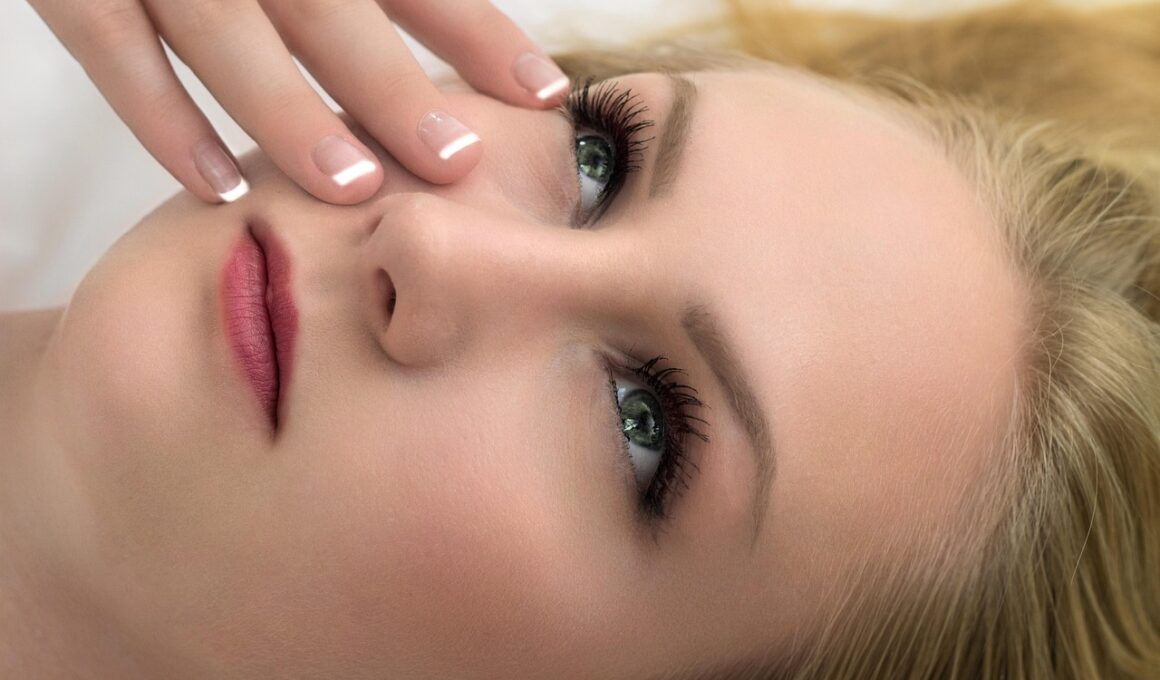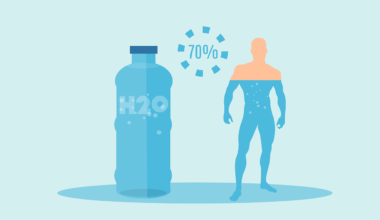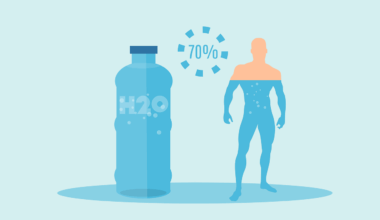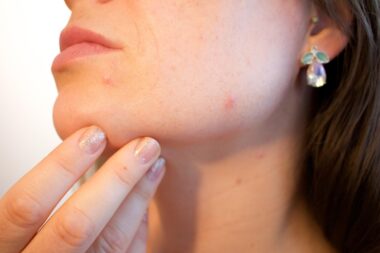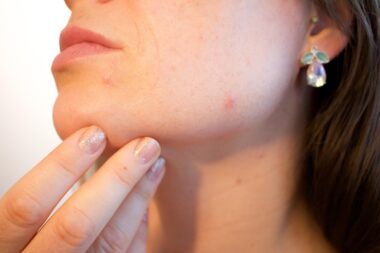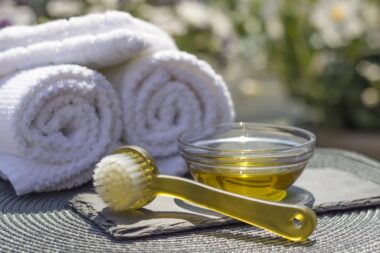How to Support Hormonal Health for Radiant Skin
Hormonal imbalances can drastically affect our skin. Hormones such as estrogen and testosterone play vital roles in skin health. When these hormones fluctuate, it may lead to various skin issues such as acne, dryness, or premature aging. To support hormonal balance, it is essential to adopt a holistic approach that includes a nutritious diet, regular exercise, and proper skin care. Incorporating foods rich in antioxidants can protect the skin from oxidative stress. Hormonal fluctuations can also cause increased oil production, leading to breakouts. Skincare routines may need to adapt with age and hormonal changes. Therefore, it is crucial to identify skin types and adjust products accordingly. This way, we can ensure a proper balance. In addition, consult a healthcare professional to evaluate any underlying hormonal issues. Personalized plans may be necessary based on individual health conditions and lifestyle factors. Moreover, paying attention to mental health is crucial, as stress can significantly impact hormone levels. Stress management strategies such as yoga or meditation should be considered to promote overall well-being.
Nutrition is key to supporting hormonal health for beautiful skin. Consuming a diet rich in whole foods, including fruits, vegetables, whole grains, lean proteins, and healthy fats, plays a crucial part in hormone regulation. Essential fatty acids, particularly omega-3s found in fish, can help reduce inflammation and promote hydration in the skin. Moreover, incorporating antioxidants like vitamin C and vitamin E can aid in skin repair and rejuvenation. Similarly, dietary fiber found in legumes and whole grains helps to balance blood sugar levels. Maintaining a stable blood sugar level is vital as fluctuations can trigger hormonal imbalances. Hydration is also vital for maintaining skin elasticity and overall health. Aim to drink at least eight glasses of water per day while including hydrating foods like cucumbers and watermelon. Additionally, avoiding processed foods, refined sugars, and excessive caffeine can minimize hormonal disturbances. Substituting these with natural sweeteners, such as honey or stevia, can lead to better skin health. Lastly, integrating herbs like ashwagandha or maca may support hormonal balance as well, offering natural remedies for an array of concerns.
The Role of Exercise in Hormonal Health
Exercise profoundly impacts hormonal balance and overall skin health. Engaging in regular physical activity helps regulate hormone levels, reduces stress, and improves blood circulation. Improved circulation enhances nutrient delivery to the skin, promoting a healthier appearance. Furthermore, exercise can reduce inflammatory markers and boost mood-enhancing hormones such as endorphins, which can help combat stress-induced skin problems. A balanced workout routine should include both cardiovascular activities, like running or cycling, and strength training exercises. Such balance maximizes hormonal regulation effectively. Additionally, incorporating yoga or Pilates introduces relaxation techniques, reducing cortisol levels that can lead to breakouts or skin deterioration. Aim for at least 150 minutes of moderate-intensity exercise weekly. It is also beneficial to listen to your body; over-exercising can result in hormonal imbalances. Adequate rest and recovery are crucial to ensure that workouts do not induce stress. Staying consistent with physical activity not only promotes skin health but also enhances psychological well-being, leading to a more radiant complexion. Truly, a commitment to a robust fitness routine is a solid foundation for maintaining hormonal health.
Stress management is essential for hormonal health and subsequently skin vitality. Chronic stress can lead to fluctuations in cortisol levels, which may result in skin problems such as acne or eczema. To manage stress effectively, it’s vital to incorporate relaxation techniques into daily routines. Activities like mindfulness, meditation, and deep-breathing exercises can help mitigate stress levels. Additionally, engaging in hobbies or spending time outdoors can foster a sense of relaxation and improve mood. It is essential to create a supportive environment that promotes well-being. Regularly taking breaks from work, focusing on self-care, and maintaining a healthy work-life balance are also crucial. Adopting healthy coping mechanisms helps to alleviate the adverse effects of stress on skin health. Limiting exposure to negative news and social media might also prove beneficial. Spending quality time with family and friends fosters emotional stability, promoting healthy skin through improved hormonal balance. Furthermore, consider seeking professional help if stress becomes overwhelming. Therapists can provide tailored strategies to handle difficult situations more effectively. Ultimately, prioritizing mental health is a key contributor to radiant skin and overall well-being.
Importance of Sleep for Hormonal Balance
Quality sleep is crucial for maintaining hormonal health, including skin integrity. When we sleep, our bodies undergo repair processes, which play a significant role in skin regeneration. Adequate rest supports hormone production, including those that help to regulate appetite and stress levels. Aim for seven to nine hours of quality sleep each night, establishing a consistent sleep schedule can aid in achieving this goal. Creating a calming bedtime routine may include activities such as reading, taking a warm bath, or practicing relaxation techniques. Furthermore, ensuring a comfortable sleep environment by keeping the bedroom dark, cool, and quiet promotes restorative sleep. Poor sleep quality can lead to increased cortisol levels, resulting in various skin issues like dryness and accelerated aging. To improve sleep hygiene, avoid caffeine and electronic screens before bedtime, as they can disrupt the body’s natural sleep cycle. If sleep problems persist, consider consulting a healthcare professional for guidance. Sleep is not merely a luxury; it is a fundamental component of overall health and vitality. By prioritizing quality sleep, we naturally enhance our skin’s health and appearance, supporting hormonal balance.
Skincare products also significantly influence hormonal health and skin vitality. Using the right products is crucial for maintaining healthy skin. Avoid harsh chemicals found in some commercial products, as they can disrupt hormone levels. Instead, opt for gentle, natural ingredients that nourish the skin without negative consequences. Look for products containing hyaluronic acid, which helps retain moisture, or niacinamide, which reduces inflammation and improves skin elasticity. Additionally, consider serums rich in vitamins C and E to promote collagen production and protect against environmental damage. Regularly exfoliating the skin encourages cell turnover, preventing dullness and promoting radiance. Furthermore, incorporating a good sunscreen is vital for protecting the skin from harmful UV rays, preventing signs of aging. Always read labels and perform patch tests to avoid adverse reactions. Recognize that each individual’s skin reacts differently, so customization is key. Working with a dermatologist may assist in identifying optimal products for specific skin types. By investing in quality skincare, we can significantly support hormonal health, ensuring a luminous and vibrant complexion.
Herbs and Supplements for Hormonal Support
Certain herbs and supplements offer promising support for hormonal balance and skin health. Natural remedies can often complement lifestyle changes, aiding in regulating hormone levels effectively. One such herb is spearmint tea, which has shown potential in reducing androgens, leading to healthier skin. Furthermore, phytoestrogens found in flaxseeds may help balance estrogen levels, promoting skin elasticity. Another popular option is evening primrose oil, which contains gamma-linolenic acid known to alleviate skin conditions like eczema and improve overall hydration. Supplements like zinc and magnesium can also play an essential role in hormonal regulation, supporting skin health. However, it’s important to consult with a healthcare provider before starting any new supplements. This ensures that the chosen remedies are appropriate and do not interfere with existing medications or health conditions. Targeted supplementation can prove beneficial as part of a comprehensive approach to hormonal health. Integrating these herbs and supplements into daily routines can contribute to skin vitality while addressing underlying hormonal concerns. Ultimately, holistic health is fundamental for achieving radiant skin.
The journey to hormonal health for radiant skin is multidimensional. It encompasses nutrition, exercise, stress management, sleep, skincare, and possibly herbal support. Each of these components influences the others, contributing to a balanced hormonal environment. By making informed choices regarding diet and lifestyle, individuals can significantly improve their skin health and overall well-being. Regular self-assessment and consultation with professionals are essential for developing personalized plans tailored to individual needs. Understanding that hormonal health is not merely a superficial venture but rather an ongoing process that requires dedication and commitment is crucial. Therefore, emphasizing the importance of holistic methods over isolated fixes will yield the best results. Integrating these practices into daily routines does take time, but the benefits are lasting. In conclusion, supporting hormonal health ultimately leads to a glowing, vibrant complexion. Recognizing the interplay between hormones and skin allows for more focused efforts in achieving and maintaining skin vitality. While challenges may arise, with commitment and the right strategies, achieving beautiful and radiant skin is attainable. Caring for our skin is also a form of self-love, reflecting our overall health and emotions.
